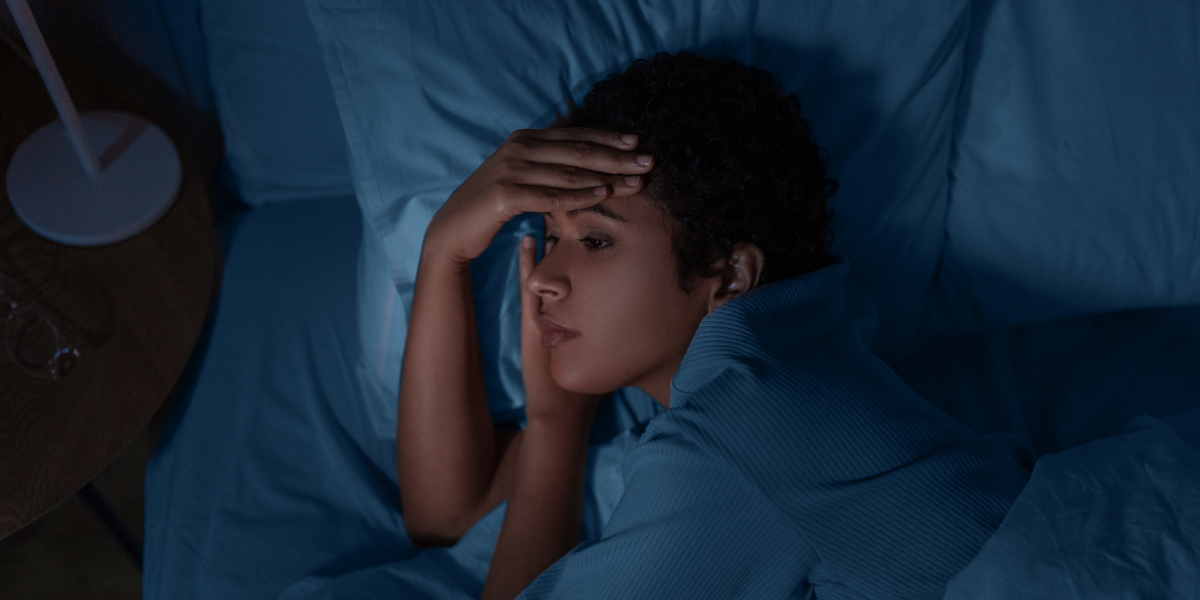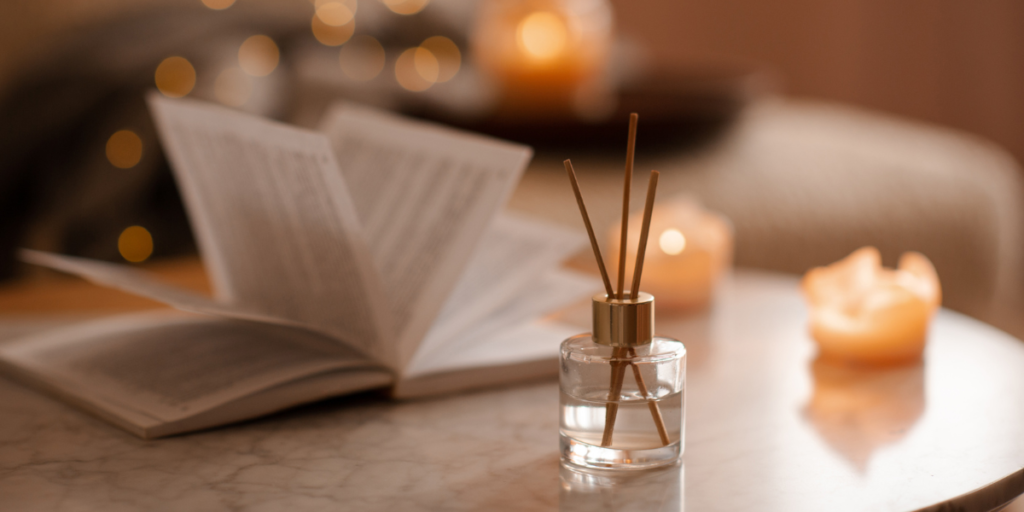Key Takeaways:
- Importance of Sleep Quality: Learn how uninterrupted sleep is crucial for energy, focus, and overall well-being.
- Practical Sleep Strategies: Explore actionable techniques to prevent frequent wake-ups and support deep sleep.
- Natural Aids for Better Sleep: Discover how natural sleep aids, like melatonin, can help improve sleep duration and quality.
Are you waking up in the middle of the night, unable to drift back into a peaceful sleep? If restless nights have left you groggy, irritable, and struggling to keep up with your day, you’re not alone. Imagine the difference in waking up fully refreshed, energized, and ready to take on whatever the day brings. Like the way a well-tuned engine keeps running smoothly, a good night’s sleep is essential for the body to function optimally.
At Reposé, we understand the importance of uninterrupted sleep, which is why we’ve crafted a line of natural, non-addictive sleep solutions to help you achieve it. Our Melatonin Gummies blend high-quality ingredients designed to support your body’s natural rhythms without any unwanted side effects. These gummies are not only enjoyable but also provide an effective and gentle approach to improving sleep quality, helping you stay asleep longer and wake up feeling truly rested.
In this guide, we’ll share simple, practical steps and introduce natural aids, like our melatonin gummies, to help you finally experience the deep, undisturbed sleep you deserve. Let’s explore how small adjustments and the right sleep support can help you stay asleep all night—naturally, safely, and consistently.
Understanding Why We Wake Up During The Night
Waking up during the night is a more common experience than many realize. These interruptions can stem from various causes, ranging from environmental factors to changes within our own bodies. Understanding why we wake up at night can be key to improving sleep quality and overall well-being. Here’s a closer look at some of the reasons behind these nighttime disturbances.
Stress And Anxiety
Stress and anxiety can have a powerful impact on our sleep. When we’re under pressure or feeling anxious, the mind can remain active even while the body is trying to rest. This heightened mental activity may cause us to wake up unexpectedly, making it difficult to return to a deep sleep.
Sleep Environment
The environment in which we sleep plays a critical role in sleep quality. Factors like room temperature, noise levels, and even the firmness of the mattress can all contribute to nighttime awakenings. When the body senses discomfort, it may prompt us to wake up to adjust our position or environment.
Lifestyle Habits
Certain lifestyle habits, such as late-night eating, caffeine consumption, or irregular sleep schedules, can disrupt sleep patterns. Stimulants like caffeine can linger in the system and cause restlessness, while inconsistent bedtimes can confuse the body’s internal clock, leading to more frequent awakenings.
Hormonal Changes
Hormonal fluctuations, especially those associated with aging, menstruation, or pregnancy, can affect sleep quality. For instance, hormonal changes in women during menopause can lead to hot flashes and night sweats, which may cause sudden awakenings during the night.
Health Conditions
Certain health conditions, such as sleep apnea, acid reflux, or chronic pain, can contribute to nighttime disturbances. Conditions like sleep apnea cause brief pauses in breathing that can force the body to wake up to restore airflow, disrupting sleep and reducing restfulness.
Aging
As we age, natural changes in sleep patterns often occur, leading to lighter, more fragmented sleep. Older adults tend to spend less time in deep sleep stages, making them more susceptible to waking up during the night in response to minor disturbances.
Bladder Sensitivity
Waking up to use the bathroom is common, especially for individuals with a sensitive bladder. For some, an increased need to urinate during the night, known as nocturia, can be disruptive. This can be due to hydration habits, medications, or health conditions affecting urinary function.
Ready to experience deeper, more restful sleep? Try Repose Melatonin Gummies! Formulated to help you fall asleep faster and stay asleep longer, these delicious gummies are a natural way to support your sleep cycle. Take the first step toward better sleep—shop now and wake up refreshed!
Create A Relaxing Sleep Environment
Creating a relaxing sleep environment is essential for uninterrupted rest. A well-curated space can minimize disturbances and foster a deeper, more consistent sleep. Here are some strategies to transform your bedroom into a sanctuary of calm and comfort, supporting better sleep quality.
Optimize Room Temperature
Keeping the room at an optimal temperature, around 65°F (18°C), can help you stay asleep longer. Cooler temperatures encourage the body to enter a deeper sleep stage, which supports restfulness. If adjusting the thermostat isn’t possible, try using a fan or lightweight, breathable bedding to stay comfortable.
Invest In Comfortable Bedding
Quality bedding, including a mattress that aligns with your sleep needs and supportive pillows, can make a significant difference in how well you sleep. A mattress suited to your body and sleep style reduces pressure points, helping you avoid restless repositioning. Supportive pillows can further improve alignment, reducing discomfort that might wake you up during the night.
Control Light Exposure
Minimizing light exposure in the bedroom is key to maintaining a restful environment, as even small amounts of light can disrupt the body’s sleep-wake cycle. Blackout curtains block out external light effectively, creating a dark, sleep-friendly space. Reducing electronic usage before bed and using warm lighting can also help prepare the body for sleep.
Minimize Noise
Reducing noise levels helps the brain stay in deep sleep stages longer, preventing unnecessary awakenings. Earplugs are a simple way to block external sounds, while a white noise machine can mask sudden noises that might otherwise interrupt sleep. Keeping pets or other potential noise sources out of the room can also contribute to a quieter environment.
Maintain Cleanliness And Order
A tidy, well-organized bedroom can help you feel more relaxed as you wind down for sleep. Clutter can subtly trigger stress, keeping the mind more active and preventing deep relaxation. Regularly dusting and keeping bedding clean also contribute to a fresh atmosphere, enhancing the overall comfort of the room.
Establish A Consistent Sleep Routine
Establishing a consistent sleep routine is one of the most effective ways to improve sleep quality. A structured approach to bedtime can help synchronize your body’s internal clock, making it easier to fall asleep and stay asleep through the night. Below are some essential components for building a sleep routine that promotes restful, uninterrupted sleep.
Set A Fixed Bedtime And Wake-Up Time
Going to bed and waking up at the same times each day, including weekends, helps regulate your circadian rhythm. This consistency allows your body to anticipate when it’s time for rest and when it’s time to wake, reducing disruptions in sleep. Over time, this routine can make falling asleep feel more natural and waking up less jarring.
Create A Pre-Sleep Ritual
Establishing a calming pre-sleep routine signals to your body that it’s time to wind down. Activities like dimming the lights, reading a book, or practicing gentle stretches help to quiet the mind and reduce tension in the body. This routine can act as a mental and physical transition from the stresses of the day to a restful night’s sleep.
Limit Stimulants And Heavy Meals
Consuming stimulants like caffeine or large meals too close to bedtime can interfere with your sleep cycle. Caffeine, in particular, can linger in the system, making it harder to fall asleep and stay asleep, while heavy meals can lead to discomfort. Aim to finish eating and drinking caffeine well before bedtime to give your body time to process and settle.
Avoid Late-Day Naps
While naps can be refreshing, napping late in the day can interfere with your ability to fall asleep at night. Short naps earlier in the day are generally less disruptive, allowing you to wake up feeling recharged without harming your nighttime sleep. By skipping late naps, you encourage your body to feel naturally tired when bedtime arrives.
Gradually Wind Down
Gradually slowing down activities as bedtime approaches prepares both your body and mind for sleep. Engaging in relaxing activities, such as meditation or listening to soothing music, can help lower your heart rate and reduce mental stimulation. This gradual shift into relaxation mode can make falling asleep faster and easier.
Avoid Stimulants And Heavy Meals Before Bed
What we consume before bed can have a powerful effect on our sleep quality. Certain foods and substances can keep us awake or disrupt sleep cycles, making it harder to enjoy deep, restful sleep. Here are some strategies to help you make better choices in the hours leading up to bedtime.
Limit Caffeine Intake
Caffeine stimulates the central nervous system, which can keep the brain alert long after consumption. Its effects can last up to six hours, making it crucial to avoid caffeine intake later in the afternoon or evening. By cutting off caffeine early, you allow your body to naturally wind down, which makes falling asleep easier.
Avoid Nicotine
Nicotine is another stimulant that can interfere with the body’s ability to relax and fall asleep. Smoking or using nicotine products close to bedtime can lead to fragmented sleep, as nicotine increases heart rate and alertness. Reducing or eliminating nicotine in the evening hours can help create a calmer state that’s more conducive to sleep.
Skip Alcohol As A Sleep Aid
While alcohol might initially make you feel drowsy, its effects on sleep are disruptive as it metabolizes. Alcohol can interfere with REM sleep, the restorative stage of sleep, leading to lighter, more disturbed rest. For more stable sleep, try to avoid alcohol within a few hours of bedtime.
Choose Lighter Evening Meals
Heavy or spicy meals can cause indigestion and discomfort, making it harder to fall asleep or stay asleep. Lighter meals in the evening, especially those low in fat and spice, are easier for the body to digest, reducing the risk of nighttime discomfort. If you’re hungry close to bedtime, opt for a small, simple snack, like a piece of fruit or yogurt.
Hydrate Wisely
Drinking excessive fluids in the evening can increase the likelihood of waking up to use the bathroom during the night. While staying hydrated is important, it’s best to moderate fluid intake an hour or two before bed to avoid interruptions. This small adjustment can help you achieve a longer, more restful sleep.
Incorporate Relaxation Techniques To Ease Into Sleep
Incorporating relaxation techniques into your nighttime routine can help ease your body and mind into a restful state, improving your chances of staying asleep throughout the night. Here are some effective methods to help you unwind and transition smoothly into sleep:
- Deep Breathing Exercises: Practicing slow, deep breaths can calm the nervous system and reduce stress. Techniques like the 4-7-8 breathing method, where you inhale for four counts, hold for seven, and exhale for eight, help ease anxiety and prepare the body for rest.
- Progressive Muscle Relaxation: This technique involves tensing and then relaxing each muscle group, starting from the toes and working upward. It helps release physical tension, fostering a relaxed state that makes it easier to fall and stay asleep.
- Guided Meditation: Listening to a guided meditation can help quiet the mind, reducing racing thoughts that often keep us awake. Meditation can promote mindfulness, allowing you to focus on the present and gradually drift into sleep.
- Gentle Yoga or Stretching: Light yoga or stretching before bed can ease muscle tension and relieve physical stress. Simple poses, like child’s pose or forward fold, help loosen the body, making it feel ready for relaxation and rest.
By integrating these relaxation techniques into your evening routine, you can create a calming transition to sleep, allowing for a deeper, more consistent rest.
When To Consult A Professional
Sometimes, despite trying various sleep strategies, persistent sleep issues continue to disrupt rest. In such cases, consulting a healthcare professional can be a vital step toward finding lasting solutions. Here’s when and why professional help might be necessary to improve sleep quality.
Recognize Persistent Sleep Problems
If sleep disturbances persist for weeks or months despite efforts to create a better sleep environment and routine, it may indicate an underlying issue. Persistent insomnia or frequent nighttime awakenings can point to more complex causes that self-help strategies cannot fully address. Recognizing this pattern early on can help in seeking timely intervention.
Identify Possible Underlying Health Conditions
Sleep issues are sometimes a symptom of conditions like sleep apnea, restless leg syndrome, or anxiety disorders, which require medical attention. For instance, sleep apnea causes breathing disruptions, while restless leg syndrome leads to uncomfortable sensations in the legs, both of which disturb sleep. A professional can conduct specific tests to identify these or other underlying issues, leading to targeted treatment.
Access Specialized Treatment Options
A healthcare provider or sleep specialist can offer treatments tailored to your needs, such as cognitive behavioral therapy for insomnia (CBT-I) or medication in cases where it’s appropriate. These professionals may recommend lifestyle changes, sleep studies, or therapeutic techniques that go beyond typical home remedies. Specialized treatment ensures that you’re working toward sustainable, effective solutions for improved sleep.
Final Thoughts
Achieving a full night’s uninterrupted sleep is essential for overall health, energy, and emotional well-being. While waking up during the night is a common experience, making intentional lifestyle changes and creating a conducive sleep environment can significantly improve your ability to stay asleep. By understanding your body’s needs, managing stress, and adopting healthy sleep habits, you can enjoy more restful nights. Remember, quality sleep is a journey, and with patience and consistency, you can find the strategies that work best for you
Read also:
- The Best Lip Scrub for Smokers’ Lip Care
- The Ultimate Lip Scrub for Lightening Dark Lips
- How a Lip Scrub Can Heal and Restore Black Lips
Frequently Asked Questions About How To Stay Asleep All Night And Avoid Waking Up
Can melatonin help me stay asleep all night?
Yes, melatonin can aid in regulating your sleep-wake cycle, especially when taken consistently. It helps signal to your body that it’s time for rest, which can lead to more stable, uninterrupted sleep.
How long before bed should I take melatonin to help with staying asleep?
It’s best to take melatonin about 30 minutes to an hour before bedtime to give your body enough time to absorb it and start promoting a relaxed, sleep-ready state.
Is waking up at night normal, and how often does it happen?
Yes, it’s normal to wake briefly during natural sleep cycles. However, repeatedly waking or being unable to fall back asleep may indicate issues like stress, sleep environment problems, or lifestyle factors.
Does diet affect my ability to stay asleep all night?
Yes, diet can impact sleep. Heavy meals, caffeine, and alcohol close to bedtime can disrupt your sleep. Opt for light, nutritious snacks if needed before bed.
How does light exposure affect my sleep quality?
Exposure to blue light from screens or bright artificial light at night can interfere with melatonin production, making it harder to stay asleep. Dim lights in the evening are recommended.
What is sleep hygiene, and why is it important for uninterrupted sleep?
Sleep hygiene refers to habits and environmental factors that support restful sleep. Good sleep hygiene, like a consistent bedtime routine, can help you stay asleep by creating an optimal setting for sleep.
Are there any specific exercises that help improve nighttime sleep?
Yes, exercises like light stretching or gentle yoga can help relax your body and mind before bed, making it easier to fall and stay asleep. Vigorous workouts should be avoided right before bedtime.
Can drinking water before bed cause sleep disturbances?
Yes, drinking too much water close to bedtime can lead to waking up to use the bathroom. Try limiting fluids an hour or two before bed to avoid interruptions.
How can aromatherapy improve my ability to stay asleep?
Certain scents, like lavender and chamomile, are known for their calming effects. Aromatherapy can help relax your mind and body, promoting deeper, more restful sleep.
When should I seek help from a doctor for my sleep problems?
If you consistently have trouble staying asleep despite lifestyle changes, it’s wise to consult a healthcare professional. Persistent sleep issues may require medical intervention or treatment.
Sources:
- Waking up in the Middle of the Night: Causes and Tips – Sleep Advisor. (2020, June 8). Sleep Advisor. http://advisortechcheck.com/index-48.html
- Your guide to healthy sleep. (2024). Google Books. https://books.google.com/books?hl=en&lr=&id=waP5DD-DiCYC&oi=fnd&pg=PP5&dq=tips+to+stay+asleep+and+not+waking+up+in+the+middle+of+the+night&ots=Op7nqjFaE5&sig=D54Yi4RkAjA5TLE3MEMnQh1inqg
- Healthy Sleep Habits, Happy Child, 4th Edition. (2015). Google Books. https://books.google.com/books?hl=en&lr=&id=NyCeCgAAQBAJ&oi=fnd&pg=PR13&dq=tips+to+stay+asleep+and+not+waking+up+in+the+middle+of+the+night&ots=WWBtzTgf_i&sig=CJJE5J7J5uNB62thOF-eZHIggG8










